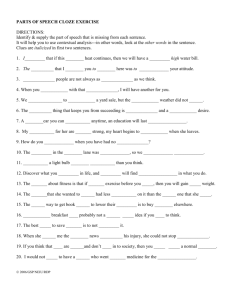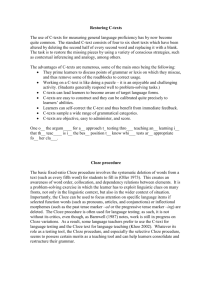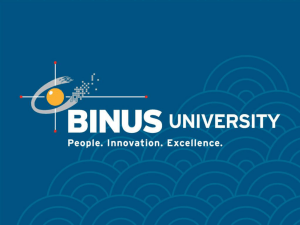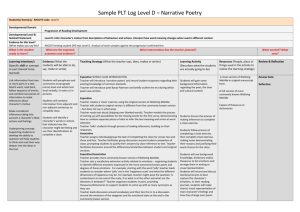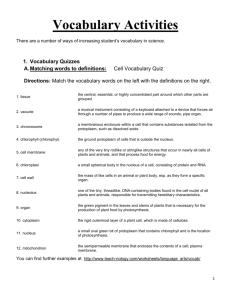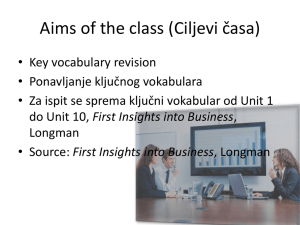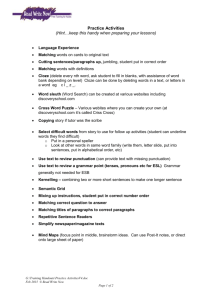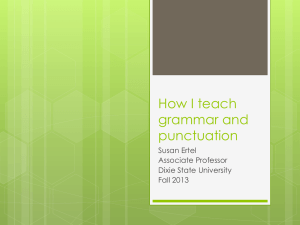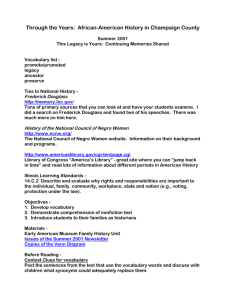An ERP study to investigate the constraining effect of Chinese
advertisement
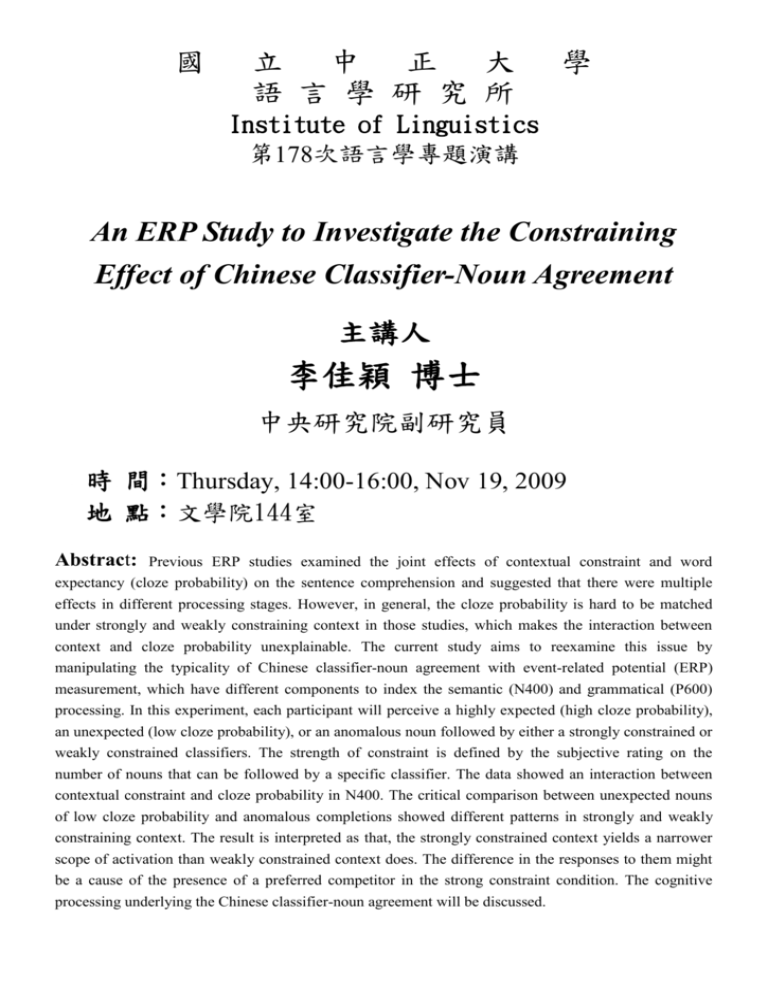
國 立 中 正 大 語 言 學 研 究 所 學 Institute of Linguistics 第178次語言學專題演講 An ERP Study to Investigate the Constraining Effect of Chinese Classifier-Noun Agreement 主講人 李佳穎 博士 中央研究院副研究員 時 間:Thursday, 14:00-16:00, Nov 19, 2009 地 點:文學院144室 Abstract: Previous ERP studies examined the joint effects of contextual constraint and word expectancy (cloze probability) on the sentence comprehension and suggested that there were multiple effects in different processing stages. However, in general, the cloze probability is hard to be matched under strongly and weakly constraining context in those studies, which makes the interaction between context and cloze probability unexplainable. The current study aims to reexamine this issue by manipulating the typicality of Chinese classifier-noun agreement with event-related potential (ERP) measurement, which have different components to index the semantic (N400) and grammatical (P600) processing. In this experiment, each participant will perceive a highly expected (high cloze probability), an unexpected (low cloze probability), or an anomalous noun followed by either a strongly constrained or weakly constrained classifiers. The strength of constraint is defined by the subjective rating on the number of nouns that can be followed by a specific classifier. The data showed an interaction between contextual constraint and cloze probability in N400. The critical comparison between unexpected nouns of low cloze probability and anomalous completions showed different patterns in strongly and weakly constraining context. The result is interpreted as that, the strongly constrained context yields a narrower scope of activation than weakly constrained context does. The difference in the responses to them might be a cause of the presence of a preferred competitor in the strong constraint condition. The cognitive processing underlying the Chinese classifier-noun agreement will be discussed.

